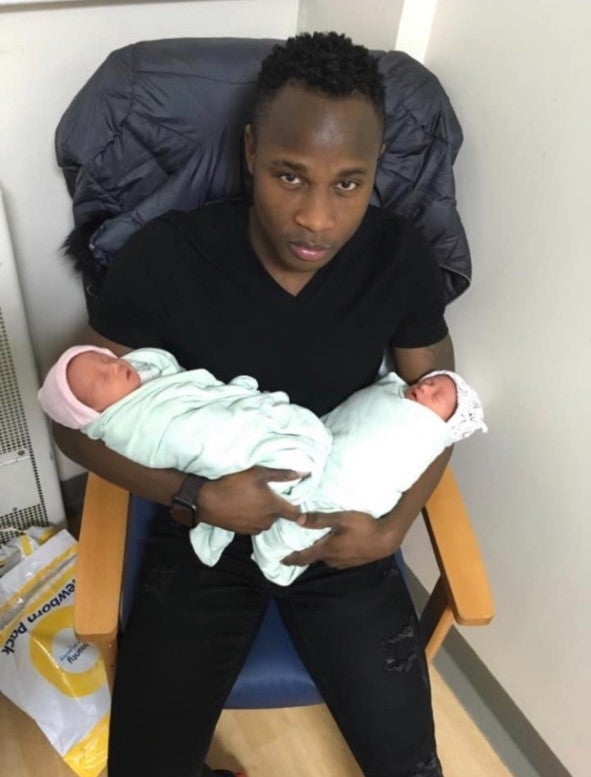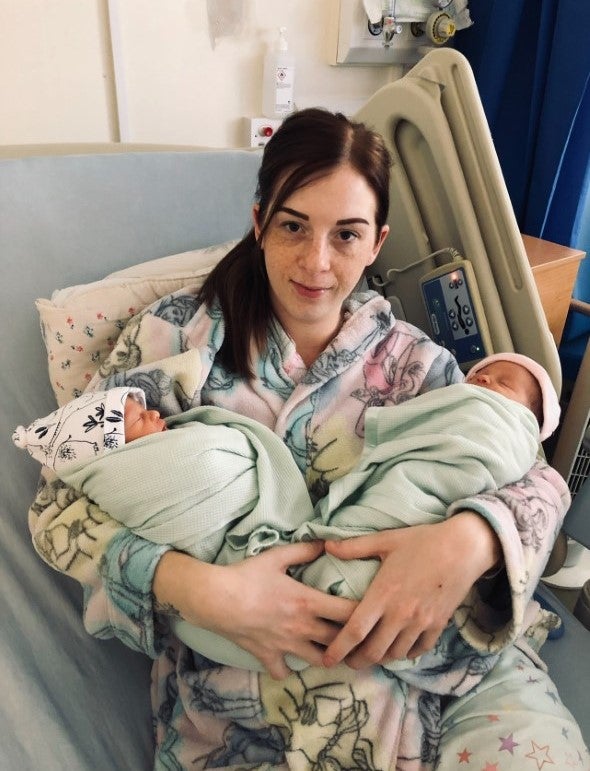Hospital admits negligence over failings that led to baby’s sepsis death
Exclusive: Family calls for NHS trust to learn lessons from failings to avoid ‘similar tragedy’

Your support helps us to tell the story
From reproductive rights to climate change to Big Tech, The Independent is on the ground when the story is developing. Whether it's investigating the financials of Elon Musk's pro-Trump PAC or producing our latest documentary, 'The A Word', which shines a light on the American women fighting for reproductive rights, we know how important it is to parse out the facts from the messaging.
At such a critical moment in US history, we need reporters on the ground. Your donation allows us to keep sending journalists to speak to both sides of the story.
The Independent is trusted by Americans across the entire political spectrum. And unlike many other quality news outlets, we choose not to lock Americans out of our reporting and analysis with paywalls. We believe quality journalism should be available to everyone, paid for by those who can afford it.
Your support makes all the difference.A hospital has admitted clinical negligence over maternity care failings that led to the potentially avoidable death of a 10-day-old baby, The Independent has learned.
Kingsley Olasupo and his twin sister Princess were born on 8 April 2019 at Royal Bolton Hospital. Kingsley died 10 days later following a catalogue of mistakes, which included failing to screen him for sepsis.
Following an investigation into his care, Bolton NHS Foundation Trust (BFT) admitted that Kingsley’s death could have been avoided if staff had administered antibiotics for an infection earlier, according to documents seen by The Independent.
Kingsley’s family said they had been “torn apart” by the infant’s death, and that they had wanted to ensure that a full independent investigation was carried out and lessons were learnt.
His father, Tunde Olasupo, told The Independent: “The family can never get over losing Kingsley, and his twin sister will never have the joy of growing up with him physically with her.
“If there are any lessons that can be learnt, then we ask that this is done to help to prevent other families from facing a similar tragedy. We will do everything that we can to push for changes, so that other families will not have to go through what we went through.”
The news comes following the publication of the Ockenden review, which made major recommendations for improvements in maternity care across the NHS after it found that almost 300 babies had died or been left brain damaged following mistakes made by the Shrewsbury and Telford Hospital Trust.
The NHS is also facing independent inquiries into maternity care at Nottinghamshire Healthcare NHS Foundation Trust and East Kent Hospitals University NHS Foundation Trust.

Kingsley and his sister were born premature at 35 weeks. Three days later, Kingsley was admitted to the special care unit because of a low temperature and “poor” feeding.
Despite being reviewed by two doctors, he was not screened for infection and not given antibiotics.
His condition deteriorated, and on 12 April he was diagnosed with bacterial meningitis and sepsis. Days later, scans revealed that he had severe brain damage and would not survive.
Kingsley’s parents, Tunde Olasupo and Nicola Daley, were told there was nothing more doctors could do for him, and that if they wished him to die peacefully they would have to agree to remove his life support.
In a release to The Independent,the couple’s lawyers said the pair were left with no choice but to agree after doctors said they would not intervene if their son suffered difficulties with his airways.

BFT launched an investigation into Kingsley’s care after Mr Olasupo and Ms Daley raised concerns over their son’s death.
According to the trust’s investigation report, seen by The Independent, failings in care included the fact that Kingsley was not screened for sepsis despite several “red flags”. Had this been done, he would have been given antibiotics.
Further, it found that when midwives first escalated concerns to the neonatal team, no physical medical review of Kingsley took place.
The investigation also found that neonatal staff did not carry out daily reviews, and reviews that were done were incomplete and contained “inaccurate” and “misleading” information.
Other failings included:
- “Ineffective” assessment of Kingsley’s wellbeing on the postnatal ward
- Poor communication between staff and poor handover processes
- No consideration being given to the fact that Kingsley was not feeding well
- Inadequate recording of observations
The family’s solicitor, Rachael Heyes, of law firm JMW, said: “Kingsley’s family has faced unimaginable pain in the wake of his death and have conducted themselves with great dignity throughout their search for answers.
“It is now three years since they lost Kingsley, in the most tragic of circumstances, and we hope they will be able to obtain further clarification via the inquest process about how this could have happened.”
In a comment sent after publication Bolton FT said: “We would like to extend our deepest condolences to the family and will be cooperating fully with the inquest to understand what we can learn from such tragic circumstances.”
A coroner’s inquest into Kingsley’s death is due to begin on 25 April.
Join our commenting forum
Join thought-provoking conversations, follow other Independent readers and see their replies
Comments